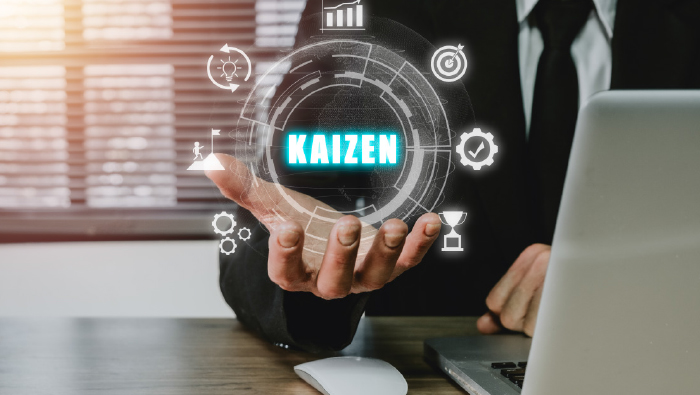
IN TODAY’S fast-paced and ever-evolving business landscape, successful project management requires more than just efficient planning and execution. To truly excel, organisations must adopt a mindset of continuous improvement that permeates every aspect of their project management practices. One such approach that has gained significant traction is Kaizen, a Japanese philosophy that emphasises small, incremental changes for continuous improvement. In this piece of writing, I will explore the benefits of incorporating Kaizen into project management and how it can lead to enhanced project outcomes.
Let’s understand Kaizen first. Kaizen, derived from the Japanese words “kai” (change) and “zen” (good), refers to the practice of making small, gradual improvements over time to achieve significant advancements. At its core, Kaizen emphasises a culture of continuous learning, collaboration, and innovation within an organisation. It encourages employees at all levels to identify inefficiencies, propose solutions, and implement changes on an ongoing basis.
How Project Management can be enhanced with Kaizen concept? First, it in my opinion it will be enhanced by increasing efficiency and productivity as Kaizen instills a mindset of constant evaluation and refinement, enabling project teams to identify bottlenecks, streamline processes, and eliminate wasteful practices.
By encouraging employees to suggest and implement small improvements, projects can achieve higher levels of efficiency and productivity. Regularly seeking feedback and making incremental adjustments to project plans and workflows enable teams to consistently optimise their performance.
Second,it will foster communication and collaboration, whereaseffective project management hinges on seamless communication and collaboration among team members. Kaizen promotes an open and inclusive environment where individuals are encouraged to contribute their ideas, experiences, and expertise. This collaborative approach leads to improved teamwork, knowledge sharing, and problem-solving capabilities, resulting in better project outcomes.
Thirdly, and most importantly,it will empower and engage employees, by involving them in the improvement process, Kaizen empowers individuals to take ownership of their work and contribute to the success of projects. It cultivates a sense of ownership, as employees witness the impact of their ideas and suggestions being implemented. This increased engagement fosters a positive work culture and motivates team members to continuously seek out opportunities for improvement.
Coming to the fourth, where it will mitigate risks and issues, as projects often encounter unforeseen challenges and changes along the way. By integrating Kaizen principles, project teams become more adaptable and proactive in managing risks.
The philosophy encourages teams to identify potential risks, implement preventive measures, and swiftly address any issues that arise. This proactive approach minimises the negative impact of risks on project timelines and outcomes.
What steps to follow to implement Kaizen in Project Management? It can be suggested,if Kaizen principles to be implemented effectively, then,organisations should adopt the following strategies:
Establish a Kaizen culture, since leadership plays a pivotal role in creating a culture that embraces continuous improvement, then he has to create that culture. Managers should actively encourage and support employees to contribute their ideas and suggestions for enhancing project processes. Recognizing and rewarding innovative thinking fosters a culture of continuous improvement.
Encouraging feed back and collaboration, by promoting open lines of communication where team members can provide feedback, share ideas, and propose improvements. Regular team meetings, retrospectives, and feedback sessions provide opportunities for collaboration and learning. Encourage cross-functional collaboration to leverage diverse perspectives and expertise.
Implementing small changes can make a big difference, by emphasising the importance of small, manageable changes that can be implemented quickly. Encourage teams to experiment with new approaches, test hypotheses, and learn from the results. A gradual and iterative approach allows for ongoing adjustments without disrupting project progress.
Finally,there should be measurement and evaluation by establishing metrics and key performance indicators (KPIs) to track the impact of Kaizen initiatives. Regularly assess the effectiveness of implemented changes and identify areas for further improvement. Use data-driven insights to guide decision-making.
By embracing the Kaizen philosophy, organisations can foster a culture of continuous improvement, leading to enhanced project outcomes, increased efficiency, and empowered employees.